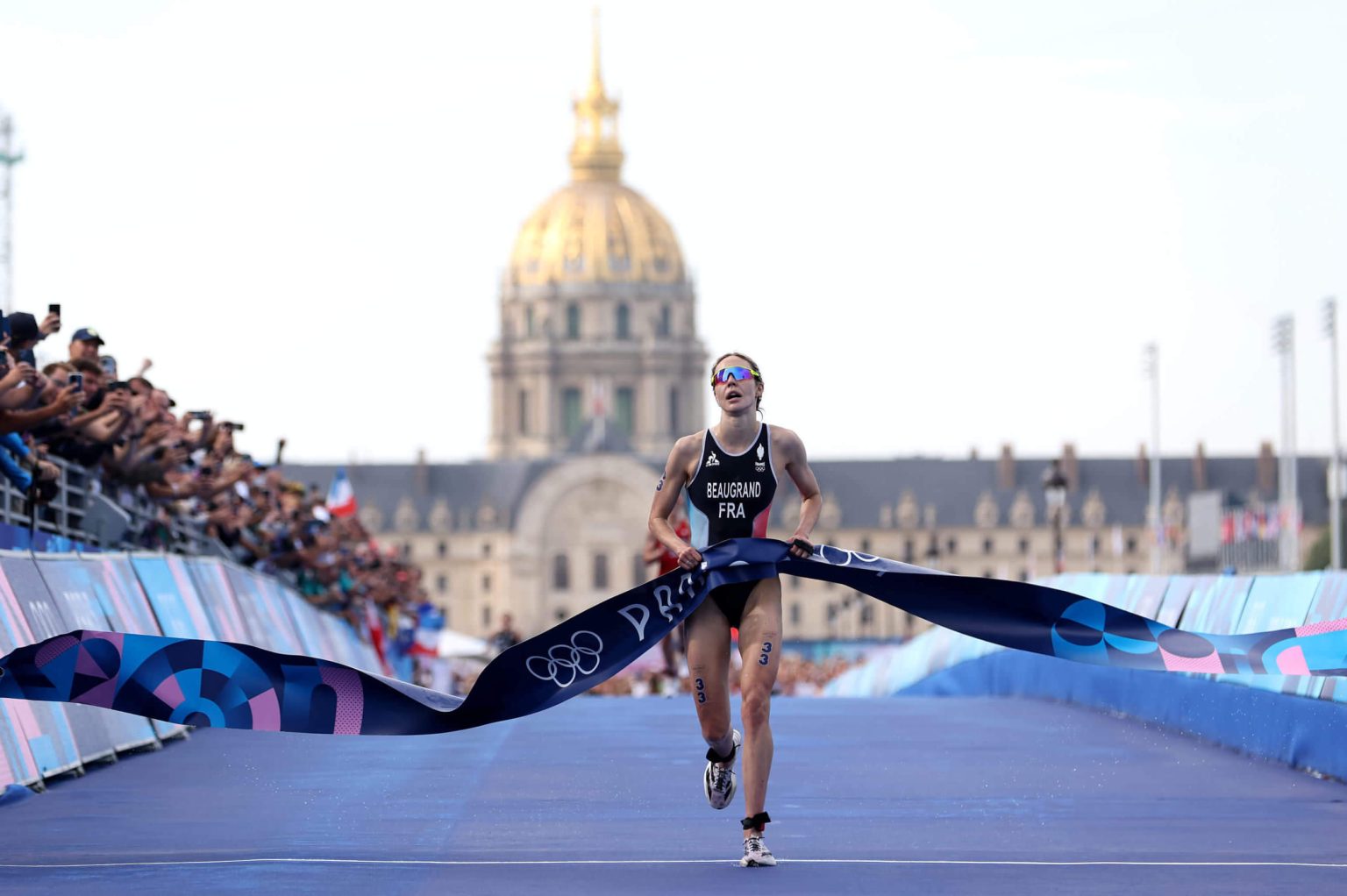Early Wednesday morning, 46 elite Olympic triathletes dove into Paris’ Seine for one of the monumental moments of this Olympic Games. Overcoming years of planning and construction, including a $1.5 billion sewage retention tank system, these women were the first people to swim in the Seine in over 100 years. Despite previous test failures due to high levels of E.coli, the river was deemed “clean enough” for competition on Wednesday. The triathletes lit up the scenic cityscape, swimming 1,500 meters, then cycling 25 miles past notable landmarks such as the Eiffel Tower and the Grand Palais, and finishing with a 6.2 mile run past the Arc de Triomphe and other city landmarks.
While many athletes raised concerns about the Seine’s pollution, navigating the river’s strong current also posed as a challenge. Taylor Spivey, a competitor from the US, compared swimming upstream to running on a treadmill. Despite the intimidating conditions, the athletes competing embraced the unique opportunity, sparking the fulfilment of a dream project for officials. The sewer retention project, aimed at making the Seine swimmable again, served as one of the Olympic Games’ legacies.
Last summer marked the opening of three swimming areas in the Seine, with plans to host three more races in the river before these games conclude. In the heat of the competition, Flora Duffy of Bermuda led an intense lead group after the swim segment. The game, however, was most likely to crown its victor on the run. After 82 minutes, Julie Derron of Switzerland fronted the race into its final leg.
The American contender, Spivey, was the first to fall behind. Frenchwomen, Cassandre Beaugrand and Emma Lombardi, hung with Derron and Beth Potter of Britain managing to separate from everyone else. In an astonishing upset, Beaugrand, competing in front of adoring home fans, emerged triumphant, winning gold while Derron took silver and Potter pocketed bronze.
Meanwhile, in the men’s race, Brit Alex Yee won gold after a spectacular comeback run. Yee became only the second British man to secure an individual triathlon gold after Alistair Brownlee’s back-to-back victories in London and Rio de Janeiro. France’s Leo Bergere made it a multi-event medal win for the home side.
Despite the day’s success, the Seine still has much progress to make, with three more Olympic events set to occur in the river. However, another heavy downpour might lead to an event change, moving the swim races to a less contaminated, but also less glamorous flat water canoe venue east of the city. Nonetheless, the races have irrefutably produced a momentum, both for the games and for the long-term sustainability of a swimmable Seine, promisingly marking yet another cornerstone of the Olympic legacy.


